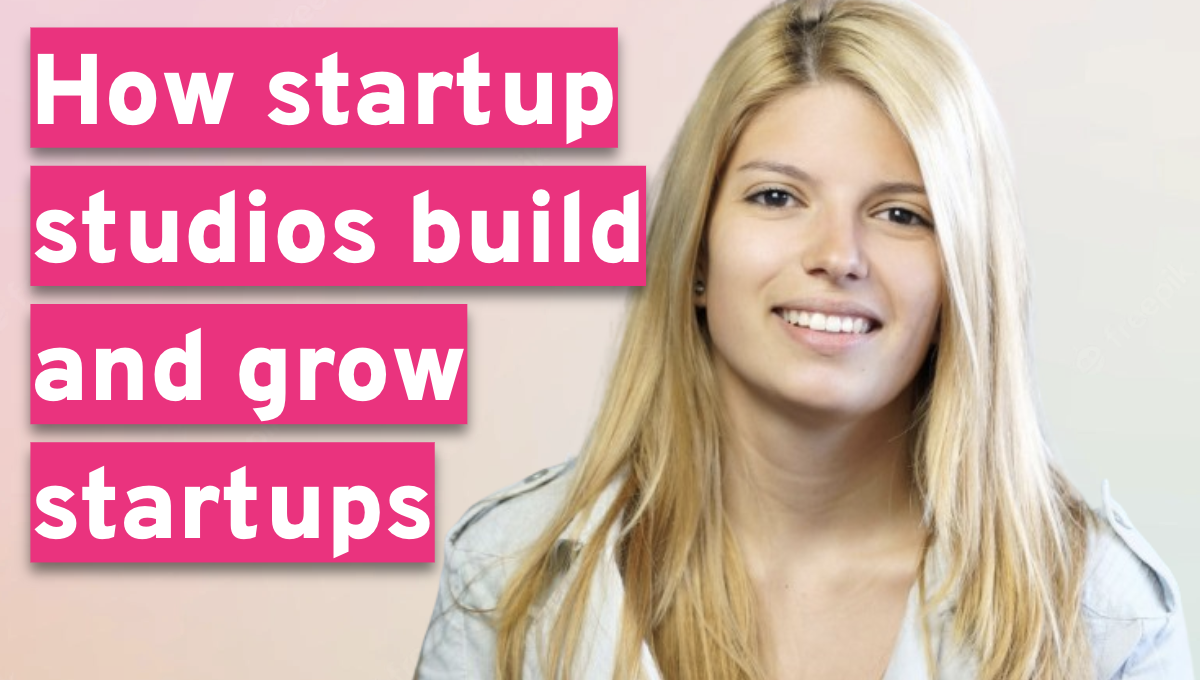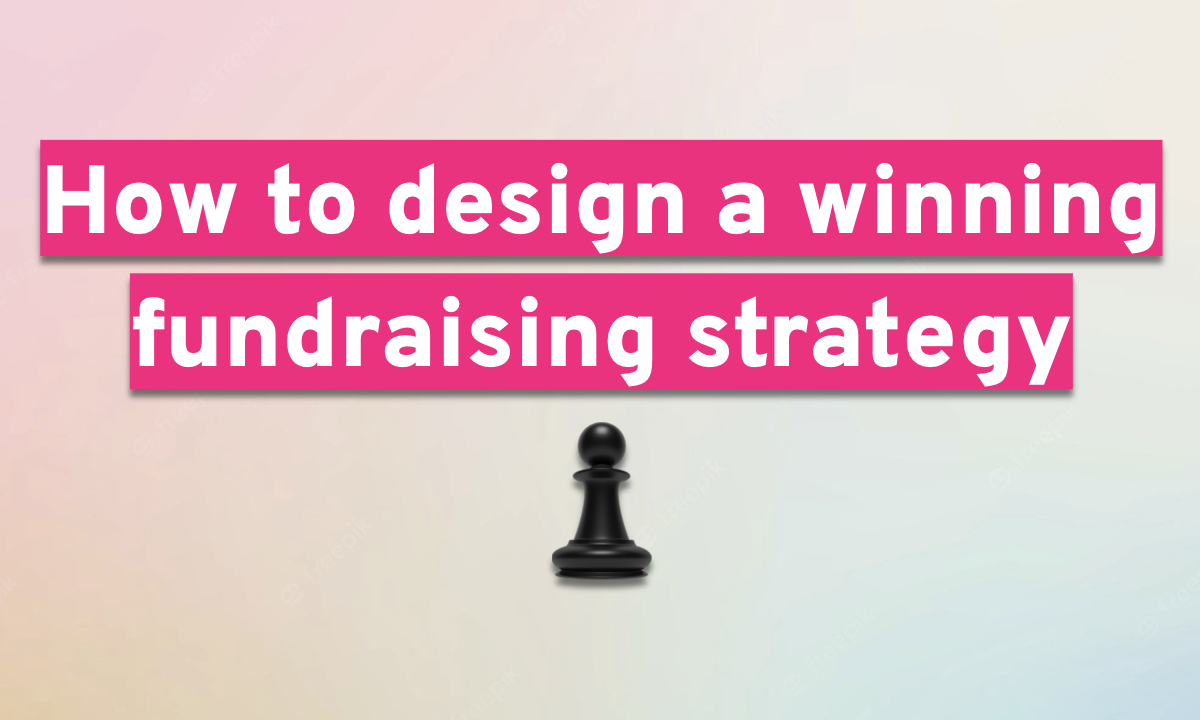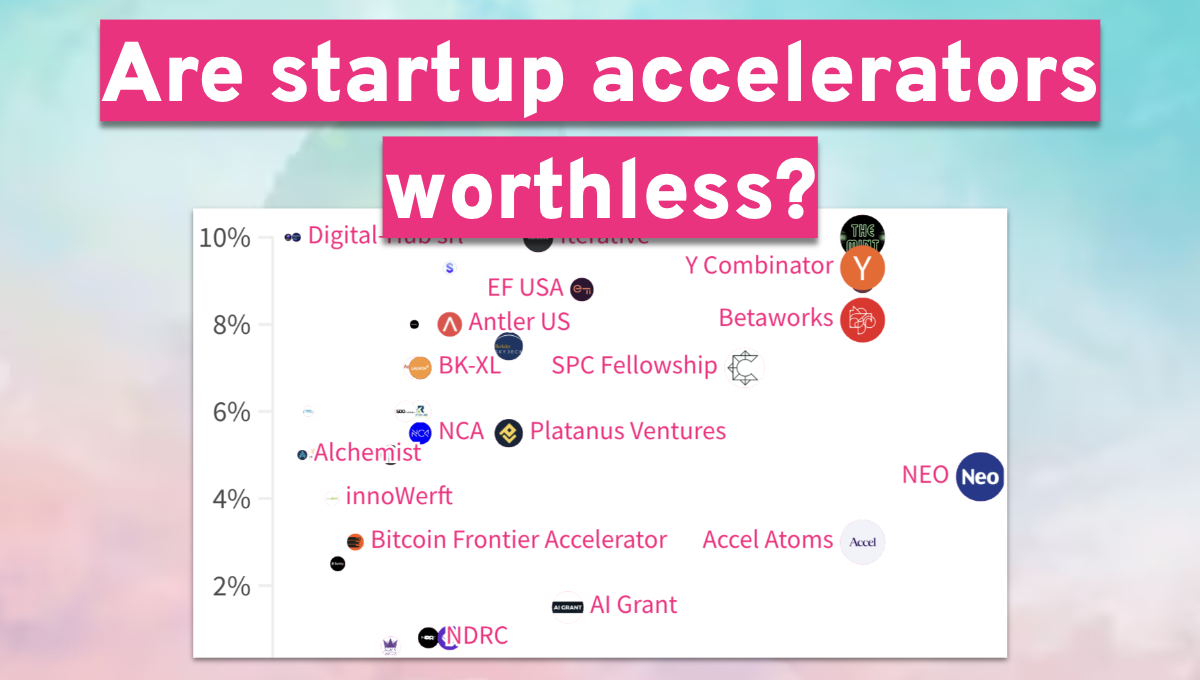Building a successful startup depends a lot on who you’re doing it with and how strong your support system is.
That’s why startup studios (also known as "venture studios") might be a breath of fresh air for founders. Unlike incubators, accelerators, or traditional VCs, they are involved from ideation to scaling, providing comprehensive support and resources.
In this article, we’ll focus on how venture studios operate, the benefits provide to founders, and how they stand out in the startup ecosystem.
Table of Contents
I. What is a startup studio?
A "startup studio" or "venture studio" is a structure that builds startups from scratch.
They generate and test ideas, invest capital, allocate resources, and provide operational support. They are hands-on and directly involved in every aspect of building a startup, including product management & development, software development, design, marketing, sales, legal & compliance, and operations.
II. Startup studios, incubators, accelerators, VCs: what are the differences
Unlike incubators, accelerators, or VC funds, startup studios are directly engaged in building ventures from the ground up.
While all models aim to foster growth, their approaches and involvement levels differ significantly. Venture studios provide direct support and resources throughout the lifecycle of a startup, from ideation to scaling, offering a more integrated and involved approach compared to the typically advisory roles of incubators, accelerators, and VC funds.
Incubators: idea refinement and smaller equity stakes
Incubators usually engage with founders at a very early stage. They assist mainly in refining the startup idea. Incubators often offer structured educational programs to cohorts of startups, which can include dozens of companies at a time. A key difference lies in equity stakes. Incubators typically require a smaller equity share (if at all), usually 3-10%, reflecting their less intensive involvement compared to venture studios. Besides the equity percentage, another fundamental difference is the duration and nature of the support provided. In venture studios, the commitment often spans several years of hands-on work. In contrast, incubator programs generally offer a few months of training and guidance.
Accelerators: rapid growth programs for early-stage startups
Accelerators, on the other hand, are programs designed to fast-track the growth of existing early-stage startups. They typically offer a blend of mentorship, capital, and networking opportunities over a fixed, short-term period, often culminating in a demo day where founders pitch to investors. Accelerators usually work with startups that already have a defined business idea and a founding team in place.
VCs: funding with limited hands-on involvement
Venture capital funds provide funding to startups in exchange for equity. Their involvement varies but is typically less hands-on compared to venture studios. After investing, VCs may take on advisory roles, providing strategic guidance and leveraging their networks to support the startup's growth. However, their day-to-day involvement in the venture's operations is usually minimal.
Venture studios: co-build and close funding rounds faster
Venture studios provide a full-scope team, and direct operational assistance, typically including specialists in diverse areas. Furthermore, they allocate funding that allows startups to streamline processes and get initial traction.
Rather than acting as passive investors, venture studios are co-founders who have a deep commitment to the startup's success and offer substantial support each step of the way.
This holistic support system ensures that founders have at their disposal the financial backing and expertise needed to navigate challenges, optimize operations, and accelerate growth.
Unlock the secrets to startup fundraising 🚀
Use our FREE, expert-backed playbook to define your valuation, build VC connections, and secure capital faster.
Access now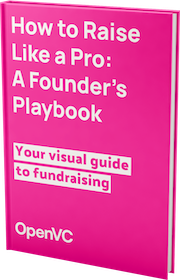
III. The startup studio model
One of the key challenges faced by startups working with venture studios is the issue of "dead equity" on the cap table after the studio’s operational involvement ends. This can create hesitation among VCs, but with a structured approach that balances founder equity, operational engagement, and long-term growth, these concerns can be effectively addressed.
Minimizing dilution by skipping pre-seed round
One way to mitigate the "dead equity" issue is ensuring that founders retain a larger share of their company by bypassing early rounds of funding that typically result in higher dilution. In traditional startup models, founders often seek out pre-seed funding or technical co-founders early on, which can lead to giving away 20-40% of equity before significant progress is made. By partnering with a venture studio, founders can avoid the need for a pre-seed round. The studio provides the necessary operational and technical expertise, allowing founders to preserve more equity while gaining access to resources that enable rapid development and market entry.
This reduces the overall dilution that occurs before Seed and Series A rounds, giving founders stronger ownership positions even after subsequent funding rounds. As a result, when VCs come into the picture, they are dealing with a startup that hasn’t suffered heavy dilution at the early stages, making it a more attractive investment opportunity.
Maintaining equity balance with small founding teams
Venture studios mostly work with solo founders or small co-founding teams (typically no more than two co-founders). This focused approach keeps the equity balance healthier from the start. A smaller founding team means fewer parties are competing for equity shares, and the founders remain highly incentivized to push the company forward.
While tech co-founders can often require up to 40% of equity, most venture studios take only 15-20%, keeping the cap table in check. This approach preserves founder equity while still delivering the necessary operational support, especially in tech-heavy roles. By keeping the equity stake at a manageable level, venture studios can prevent concerns about over-dilution before Series A and make the cap table more favorable to future investors.
Equity and cap table
Acting as co-founders, venture studios take equity in the startups they build. Generally, they get a 15-40% stake in each company, occasionally more, rarely less.
However, the entrepreneurs who co-found a venture with a studio can keep a bigger equity stake than they would have if they were building their startup with individual co-founders.
Here’s an example to visualize this: if three co-founders start a venture together and decide to raise funds to keep operations going, they must share the equity among themselves and investors, reducing individual ownership. However, partnering with a venture studio often means fewer initial founders and a smaller need for resources early on, leading to larger equity shares for each. This scenario benefits entrepreneurs by allowing them to retain more control and ownership of their startup while still receiving significant support and resources from the studio.
A solution for the dilution problem
Entrepreneurs often worry about equity dilution and its impact on their startup's valuation and funding opportunities. In the venture studios case, although they take a substantial equity stake, the support and resources provided can significantly accelerate growth and increase the startup's valuation. This can lead to better funding opportunities and a stronger position in the market, ultimately offsetting the effects of dilution.
A team from day 1
A main advantage of the venture studio model is the fact that it provides founders with immediate access to expertise and resources in different areas. Entrepreneurs can tap into the studio's network of investors, and mentors as well as their internal team of professionals.
The venture studio model is a powerful mechanism for founders. It builds startups by offering a holistic and integrated iterative approach. This model maximizes the potential for success by providing startups with the resources and guidance they need to scale. That’s what numbers say too.
Max Pag’s Big Startup Studios Research (2023) states that startups created in venture studios achieve seed funding twice as fast and exit 33% faster than conventional startups.
He also highlights that “startups created in venture studios achieve seed funding twice as fast and exit 33% faster than conventional startups” and that’s because of the support and resources provided by the studios. Venture studios’ well-structured and resource-rich approach significantly accelerates the path to funding and successful exits.
IV. How do startup studios build startups?
The process typically involves several key stages: ideation, validation, creation, spinning out, and scaling up. Here’s a short explanation of what venture studios and founders aim to achieve at every stage.
Step 1: Ideation
The first stage is getting an initial idea on a given subject, it involves brainstorming and finding a problem to solve.
Step 2: Validation
The second stage focuses on checking the feasibility and scalability of the idea. Venture studios test ideas through market research, prototyping, and customer feedback. The aim is to ensure the problem being solved is real and deeply felt by the target audience, often by conducting extensive user interviews.
Step 3: Creation
During the creation phase, the venture studio refines the product and sets up operational structures by aligning goals with a detailed roadmap. This involves defining business, product, and fundraising objectives, planning the MVP, and user onboarding. The studio then builds and launches the product, generating and testing hypotheses, and gathering user feedback for continuous iteration. User testing starts within two weeks, ensuring rapid traction and data-driven improvements. This comprehensive approach culminates in closing the seed funding round, resulting in a functional, market-ready product.
If the idea encounters significant challenges, it may loop back for further refinement. The goal is to create a functional, market-ready product that meets the identified need effectively.
Step 4: Spinning out
By succeeding in the creation stage, the idea reaches stage four, and the team spins out to operate independently. This team can be sourced from outside or within the studio. The objective is to establish a dedicated team to drive the startup forward.
Step 5: Scaling up
In the final stage, the focus is on growing the business. This involves refining the business plan, optimizing operations, and expanding the market presence. The startup actively raises funds to support its scaling efforts, aiming to increase revenue, market share, and operational capacity. The goal is to transition from a startup to a well-established, high-growth company. At this stage, venture studios provide continued support in strategic planning, networking, and accessing additional resources to facilitate the startup's expansion and long-term success.
V. Going the startup studio route
Venture studios stay behind some of the most successful startups today. They streamline the complex process of launching a startup, accelerating growth and reducing risk. This model allows founders to focus on innovation and product-market fit while leveraging the studio’s established networks, funding, and talent. As a result, startups emerging from venture studios often experience faster growth, better market positioning, and stronger long-term stability. Below, we list a few venture studios and the impressive portfolio companies they’ve helped bring to life through their hands-on approach.
Famous startup studios & their portfolio companies
Atomic (US)
Atomic is known for its systematic approach to building companies, taking ideas from concept to launch in record time. One of its most prominent success stories is Hims & Hers , a telehealth company that went public within four years of its inception. The platform, which focuses on personal wellness and healthcare, raised $200 million in a SPAC deal, showcasing Atomic’s ability to build scalable, investor-attractive businesses.
Other notable portfolio companies include:
- Homebound, which revolutionizes the way people build custom homes after disasters.
- Bungalow, a tech-enabled residential real estate platform making city living more affordable and connected.
- Replicant, a leader in conversational AI that transforms customer service automation.
Atomic’s process focuses on fast iteration and launching multiple startups at once. They provide founders with immediate access to teams of engineers, designers, and marketers, ensuring a strong product-market fit before significant scaling.
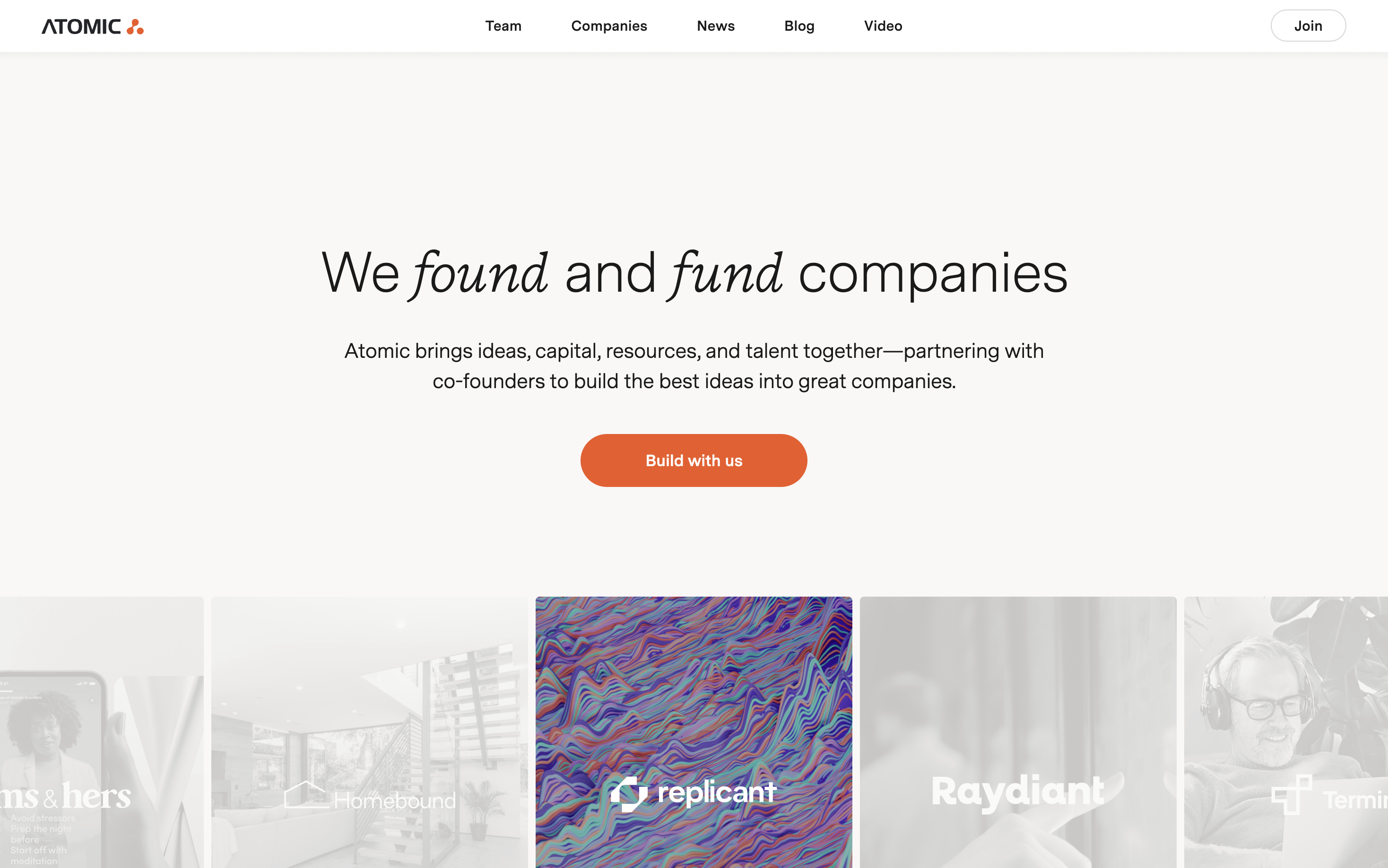
Idealab (US)
Idealab, one of the first venture studios, has launched over 150 companies across various industries since its founding by Bill Gross in 1996. Its portfolio boasts successful startups that are not only leaders in their fields but also highly innovative.
Key successes include:
- Energy Vault , which is pioneering gravity-based energy storage solutions that are poised to revolutionize the renewable energy sector.
- Perfect Market , a content optimization company acquired by Taboola, aimed at helping publishers maximize their revenue through better content monetization.
- CarsDirect , one of the first online car-buying services, which transformed how consumers purchase cars and led to a wave of innovation in online marketplaces.
Idealab follows a rigorous process of idea validation, rapid prototyping, and user testing before launching its startups. This ensures that only the most viable ideas move forward, contributing to their strong success rate.
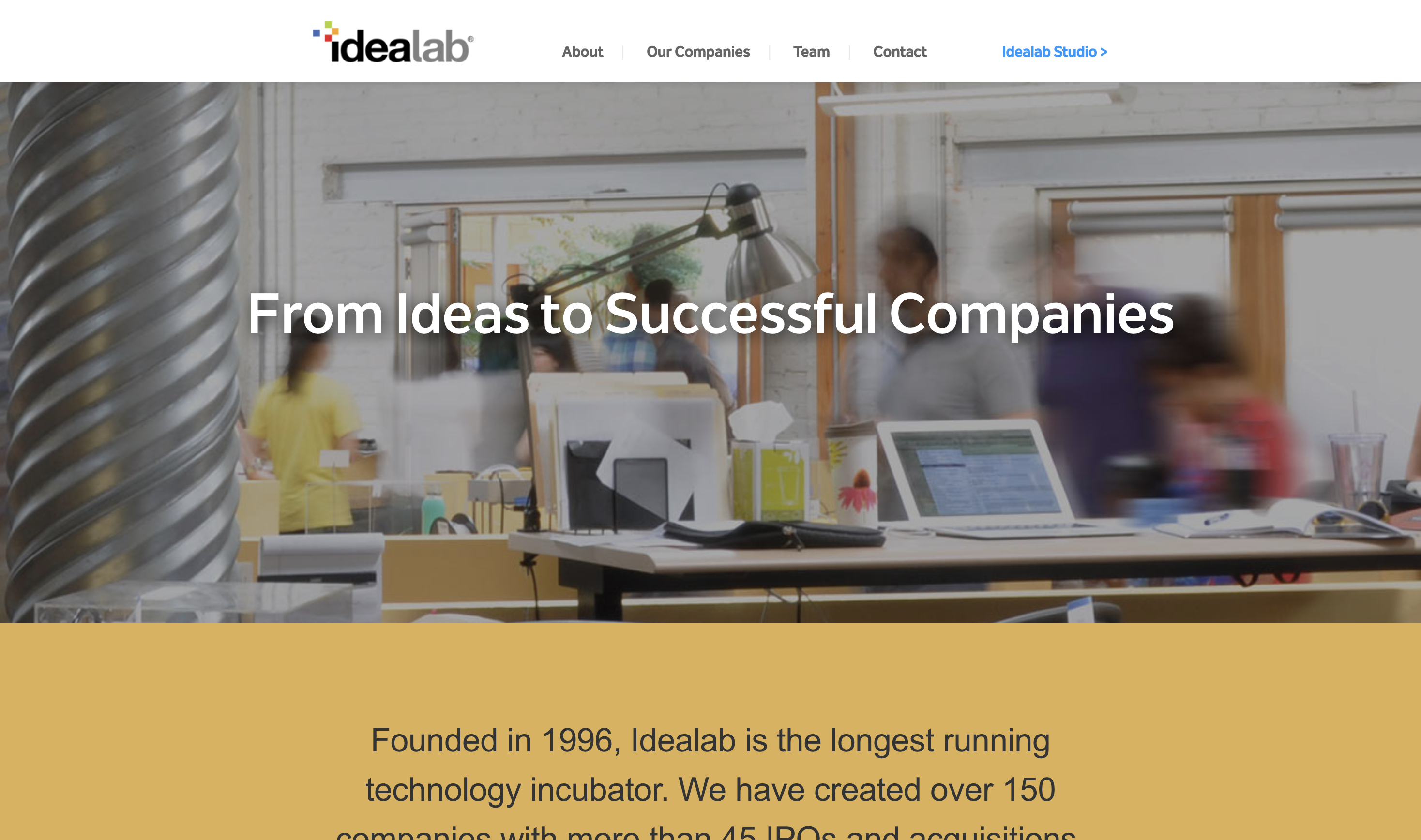
Hexa (France)
Hexa, a venture studio based in Europe, has built a reputation for helping startups across multiple sectors achieve rapid growth by integrating its deep expertise in strategy, operations, and technology.
Some of its standout portfolio companies include:
- Ovo Energy , a green energy company that has grown to become one of the largest independent energy suppliers in the UK, offering innovative solutions to the challenges of sustainable energy consumption.
- Starling Bank , a fully mobile UK-based digital bank that has transformed the personal and business banking landscape with its user-centric design and features.
- Globant , a digital consultancy that specializes in transforming organizations through emerging technologies like AI, blockchain, and cloud computing.
Hexa’s approach involves embedding experts into every step of the startup’s journey, from ideation to product launch and scaling. With a focus on building teams quickly and efficiently, Hexa empowers founders with resources and a global network to fast-track their growth.
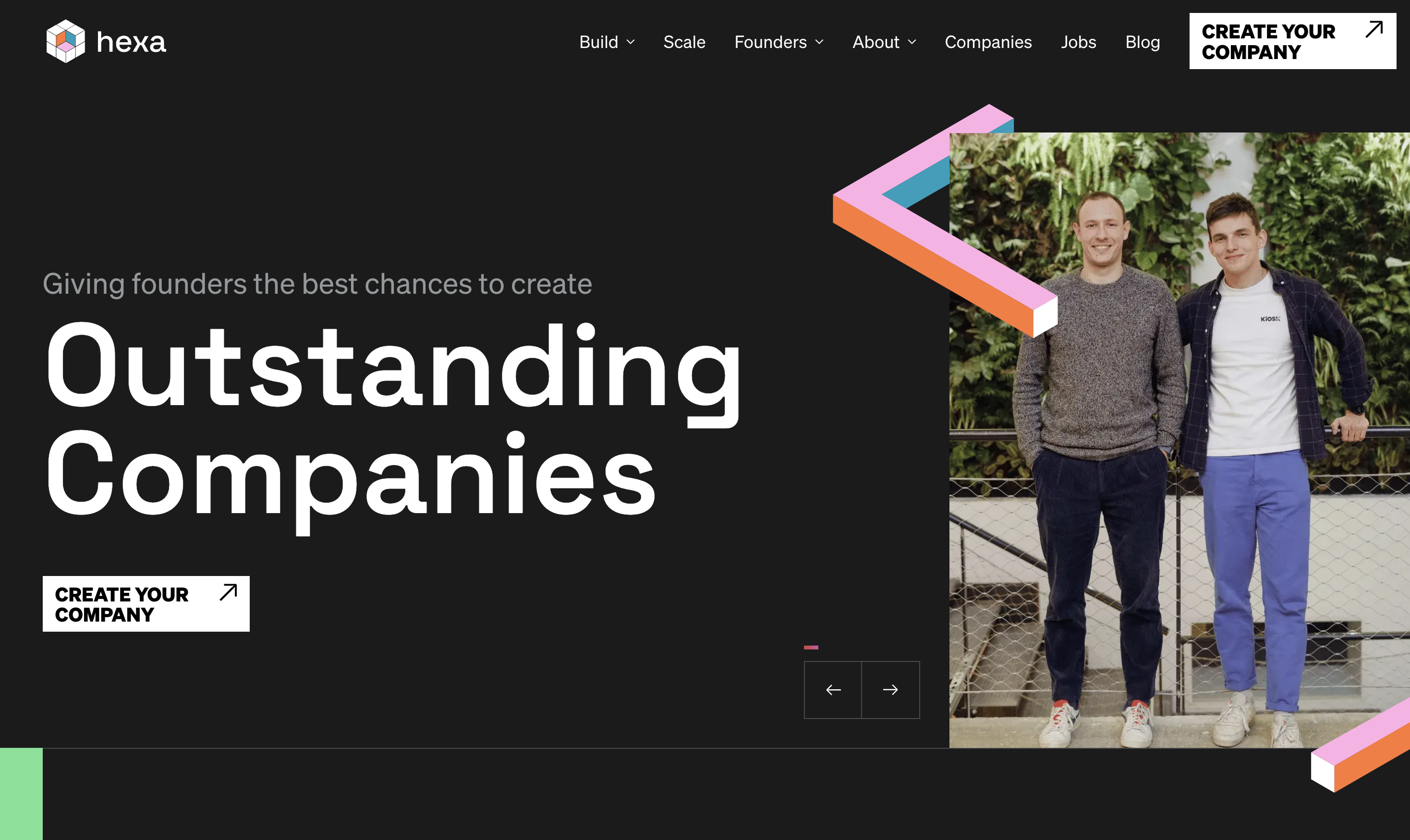
Should I join a studio as a co-founder?
Deciding whether to partner with a venture studio depends on your individual goals and the kind of support you need to build and scale your startup. Here are some factors to consider:
Hands-on expertise
If you’re a founder who values hands-on operational support and expertise across multiple areas, partnering with a venture studio might be the perfect fit.
Equity trade-off
Venture studios typically take a significant equity stake, often between 15-40%. While this can dilute founder control, the trade-off is receiving the resources, capital, and mentorship to build a more successful company. Founders who prioritize speed to market and rapid scaling may find the equity trade-off well worth it.
Speed and resources
A venture studio can provide the necessary resources and a fast track to market, with expertise and teams ready to hit the ground running. For founders who need to quickly validate an idea, scale operations, or secure funding, partnering with a studio can be an invaluable asset.
Assessing long-term goals
While venture studios can accelerate growth and provide substantial resources, it’s important to consider your long-term vision. Are you willing to share decision-making authority with a co-founder-like partner? For founders who value autonomy, the deep involvement of a venture studio may require careful consideration.
The bottom line
Venture studios are powerful participants in the startup ecosystem. The aggregated knowledge on successful venture building they have increases the chances of success significantly. They know what a good idea is, how to validate it, and how to launch it. That’s why more and more founders prefer partnering with them. Some even see them as hotspots for the next uni(and deca)corns. Do you?
Unlock the secrets to startup fundraising 🚀
Use our FREE, expert-backed playbook to define your valuation, build VC connections, and secure capital faster.
Access now
About the author
Ralitsa Ivanova is a serial entrepreneur, an angel investor, and a startup advisor with extensive experience in the product and tech field. She is a co-founder of Appolica, a venture studio that works with founders from the ground up.
Ralitsa is part of the EY Entrepreneurial Winning Women program and the Forbes 30under30 selection. She’s passionate about helping founders create more value with fewer resources and actively supports female founders and working moms in becoming successful.
